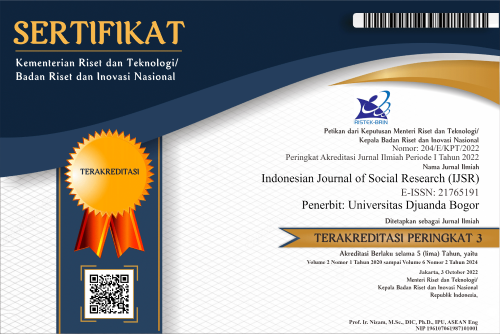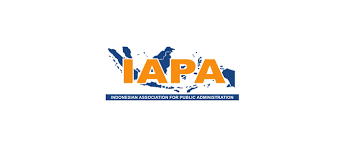Sustainable Marketing in The Ready-Made Garments (RMG) Sector of Bangladesh
Abstract
Innovative managerial and social changes, such as sustainable marketing practices considerably improve organizational performance. Although the RMG sector of Bangladesh is widely known to global consumers through the ‘Made in Bangladesh’ tagline, effective implementation of sustainable marketing in the country has been proven as a difficult task. This research examines the current state and implications of sustainable marketing in the RMG sector of Bangladesh. Primary data were collected from 20 RMG factories located in Dhaka and Gazipur that were selected using convenience sampling techniques and 120 officials were selected using convenience and snowball sampling techniques. Data were analyzed using the content analysis technique where the theoretical framework was informed by the theory of planned behavior. The research shows that knowledge about sustainable marketing of most factories is limited and often they are not interested in practicing it. It also evidences that RMG manufacturers have been late in emphasizing and adopting sustainable marketing practices. They have not yet started showing concerns in this respect. Lack of supporting information systems often impedes the implementation of sustainable marketing practices. Legal requirements and the mandatory rule for sharing information regarding sustainable marketing work as the main motivations to adopt sustainable marketing practices.
References
ADB (2021). Asian Development Outlook (ADO). ADB. https://www.adb.org/publications/asian-development-outlook-2021-update.
Ahmed, F. Z., Greenleaf, A., & Sacks, A. (2014). The paradox of export growth in areas of weak governance: The case of the ready made garment sector in Bangladesh. World Development, 56, 258–271.
Ahmed, N. (2009). Sustaining ready-made garment exports from Bangladesh. Journal of Contemporary Asia, 39(4), 597–618.
Ajzen, I. (1985). From intentions to actions: A theory of planned behavior. In Action control (pp. 11–39). Springer.
Almila, A.-M., & Inglis, D. (2017). The Routledge International Handbook to Veils and Veiling. Taylor & Francis.
Ara, H., Yeap, J. A. L., & Hassan, S. H. (2020). Does going green really pay off? A sustainability performance view. World Review of Entrepreneurship, Management and Sustainable Development, 16(5), 519–537.
Conner, M. (2020). Theory of planned behavior. Handbook of Sport Psychology, 1–18.
Dąbrowska, A., & Janoś-Kresło, M. (2018). Collaborative consumption as a manifestation of sustainable consumption. Problemy Zarządzania, 3/2018 (75), t. 1, 132–149.
Emanuel, W., Dickens, C., Hunter, J., & Dawson Jr, M. E. (2011). CLARIFYING SOCIETIES’NEED FOR UNDERSTANDING SUSTAINABLE SYSTEMS. Journal of Applied Global Research, 4(9).
Emery, B. (2011). Sustainable marketing. Pearson Education.
Ferdous, A. S. (2010). Applying the theory of planned behavior to explain marketing managers’ perspectives on sustainable marketing. Journal of International Consumer Marketing, 22(4), 313–325.
Godin, G., & Kok, G. (1996). The theory of planned behavior: A review of its applications to health-related behaviors. American Journal of Health Promotion, 11(2), 87–98.
Hall, C. (2021). Vietnam overtakes Bangladesh in garment exports. The Business of FashionHuq, F. A., & Stevenson, M. (2020). Implementing socially sustainable practices in challenging institutional contexts: Building theory from seven developing country supplier cases. Journal of Business Ethics, 161(2), 415–442.
Huq, F. A., Stevenson, M., & Zorzini, M. (2014). Social sustainability in developing country suppliers: An exploratory study in the ready made garments industry of Bangladesh. International Journal of Operations & Production Management.
Islam, M. S., Rakib, M. A., & Adnan, A. (2016). Ready-made garments sector of Bangladesh: Its contribution and challenges towards development. Stud, 5(2).
Kabeer, N., & Mahmud, S. (2004). Globalization, gender and poverty: Bangladeshi women workers in export and local markets. Journal of International Development, 16(1), 93–109.
Khan, A., & Ullah, M. R. (2017). Export scenario between Bangladesh and China: Opportunities of Bangladesh in RMG sector. Eur Sci J, 13(28), 299–320.
Khondkar, M. (1999). Should the marketing concept permeate the whole organization?, D.U.
Journal of Marketing, 2(2), 37-47.
Khondkar, M. (2021). Hijab as a Muslim attire and a fashion trend in Bangladesh. Europian Journal of Business and Management, 13(3), 57-70.
Lučić, A. (2020). Measuring sustainable marketing orientation—Scale development process. Sustainability, 12(5), 1734.
Mahmud, M. I., & Afrin, S. (2017). Sustainability of female workforce in the ready-made garment industries of Bangladesh. International Journal of Science and Qualitative Analysis, 3(5), 49–54.
Mancuso, I., Natalicchio, A., Panniello, U., & Roma, P. (2021). Understanding the purchasing behavior of consumers in response to sustainable marketing practices: An empirical analysis in the food domain. Sustainability, 13(11), 6169.
Martin, D. M., & Schouten, J. (2011). Sustainable marketing. Pearson Prentice Hall.
Mottaeva, A., Nechaeva, M., & Nechaev, V. (2021). The concept of sustainable development of territories. 258, 03011.
Mottaleb, K. A., & Sonobe, T. (2011). An inquiry into the rapid growth of the garment industry in Bangladesh. Economic Development and Cultural Change, 60(1), 67–89.
Muzareba, A. M. & Rahman, M. M. (2007). Financial market performance of the leading textile companies of Bangladesh. Journal of Business Studies, 28(2), 73-98.
Nath, N. (2021). Manufacturing sector of Bangladesh-growth, structure and strategies for future development. 1–43.
Rahman, M., Khan, T. I., Kamal, M., Nawar, N., Alam, M., & Hossain, M. S. (2021). COVID-19 and Employment Related Adjustments: Findings from Household Survey in Bangladesh.
Rashid, M. A. (2006). Rise of ready-made garments industry in Bangladesh: Entrepreneurial ingenuity or public policy. 11–12.
Rhee, Y. W. (1990). The catalyst model of development: Lessons from Bangladesh’s success with garment exports. World Development, 18(2), 333–346.
Rock, M. (2001). Globalisation and Bangladesh: The case of export‐oriented garment manufacture. South Asia: Journal of South Asian Studies, 24(1), 201–225.
Rudawska, E. (2017). Sustainable Marketing Concept—A New Face of Capitalism. British Journal of Research, 4(2), 1–2.
Sadique, M. S., Anthony Das, C., & Prasad, K. (2018). Ready Made Garment Industry: Comparative FDI Attracting Policy Analysis for Bangladesh and Vietnam. Krishna, Ready Made Garment Industry: Comparative FDI Attracting Policy Analysis for Bangladesh and Vietnam (October 31, 2018).
Sarkar, A., Qian, L., & Peau, A. K. (2020). Overview of green business practices within the Bangladeshi RMG industry: Competitiveness and sustainable development perspective. Environmental Science and Pollution Research, 27(18), 22888–22901.
Saxena, R., & Khandelwal, P. K. (2010). Sustainable development through green marketing: The industry perspective.
Schouten, J. W., Martin, D. M., & McAlexander, J. H. (2012). The evolution of a subculture of consumption. In Consumer tribes (pp. 82–90). Routledge.
Schrader, U., & Thøgersen, J. (2011). Putting sustainable consumption into practice. Journal of Consumer Policy, 34(1), 3–8.
Statista (2021). Share of total exports of ready-made garments (RMG) in Bangladesh from 2011 to 2020. Bangladesh.
Trojanowski, T. (2014). Marketing in Sustainability Aspect as a New Culture of Marketing Activity of Companies. Journal of Intercultural Management, 6(4.2), 15–23.
UN (2019). The Future is Now – Science for Achieving Sustainable Development. Global Sustainable Development Report 2019, UN, New York
Van Dam, Y. K., & Apeldoorn, P. A. (1996). Sustainable marketing. Journal of Macromarketing, 16(2), 45–56.
World Bank (2021). Overview: The World Bank in Bangladesh. World Bank.
WTO (2019). Trade Policy Review: Report by the Secretariat: Bangladesh. WTO.
Yunus, M., & Yamagata, T. (2012). The garment industry in Bangladesh. Dynamics of the Garment Industry in Low-Income Countries: Experience of Asia and Africa (Interim Report). Chousakenkyu Houkokusho, IDE-JETRO, 6, 29.
Zinkin, J. (2006). Strategic marketing: Balancing customer value with shareholder value. The Marketing Review, 6(2), 163–181.
Copyright (c) 2022 Indonesian Journal of Social Research (IJSR)

This work is licensed under a Creative Commons Attribution-ShareAlike 4.0 International License.
The Authors submitting a manuscript do so on the understanding that if accepted for publication, copyright publishing of the article shall be assigned/transferred to Indonesian Journal of Social Research (IJSR) Universitas Djuanda as Publisher of the journal. Upon acceptance of an article, authors will be asked to complete a 'Copyright Transfer Agreement'. An e-mail will be sent to the corresponding author confirming receipt of the manuscript together with a 'Copyright Transfer Agreement' form by online version of this agreement.
Indonesian Journal of Social Research (IJSR) Universitas Djuanda, the Editors and the Editorial Board make every effort to ensure that no wrong or misleading data, opinions or statements be published in the journal. In any way, the contents of the articles and advertisements published in the Indonesian Journal of Social Research (IJSR) Universitas Djuanda are sole and exclusive responsibility of their respective authors and advertisers.
Remember, even though we ask for a transfer of copyright, our journal authors retain (or are granted back) significant scholarly rights as mention before.
The Copyright Transfer Agreement (CTA) Form can be downloaded here: Copyright Transfer Agreement-IJSR 2020
The copyright form should be signed electronically and send to the Editorial Office e-mail below:
Dr. Rasmitadila, M.Pd (Editor-in-Chief)
Universitas Djuanda
Jl. Tol Jagorawi No.1, Ciawi, Kec. Ciawi, Bogor, Jawa Barat 16720
Website: http://journal.unida.ac.id/index.php/IJSR/index
Email: ijsr@unida.ac.id





4.png)



